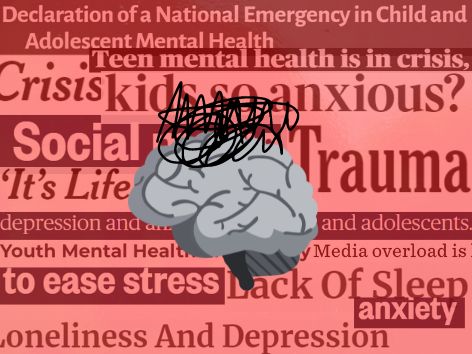Should Personal Finance be a required course at HB?
Mrs. Henderson and Mr. Illingworth, the Personal Finance teachers, highly recommend students to take this course.
March 10, 2017
Personal Finance is a course here at Hollis Brookline, established and taught by math teacher Mark Illingworth, and by social studies teacher Katie Henderson as well. The Hollis Brookline community, similar to most communities around the country, is torn as to whether Personal Finance should be a required credit to graduate high school.
The majority vote is yes: in a CavChron survey released to the community, 82.3% of the respondents said that this should be a required course. They believe that Personal Finance should be taught in the school by those who specialize in the subject, and some of those voters have proof that the course is useful to take. Donna Fothergill, the mother of an HB alumnus, said that the course has “helped him [her son] with his work at his business school in college.” Those who voted “yes” want students to know what they need to learn financially before they graduate from high school, but don’t think it should be taught at home.
The other 17.7% believe that the course shouldn’t be required. There were several reasons for this: some said that parents are responsible for their child’s real-world skills, some said that it’s already an option to take and that the choice should be the student’s responsibility, and others would like a less specific course that covers all the skills that students should know when going into the real world.
Alumnus Evan Maloney discusses this last point in saying that the school should have a “comprehensive and integrative life skills course.” He said it would be “far more helpful” and would have “valuable, applicable life skills.” Though it was the minority vote, the people in the community who voted “no” feel very strongly about their reasons for saying so.
According to the Council of Financial Education, there is a law in 17 states requiring schools to teach some type of financial education course. Twenty of the 50 states require it to be offered in the program of studies. New Hampshire is a part of both those categories. Our Economics course introduces students to the world of finance, which is the course HB requires. Then, from there, students have the option to take Personal Finance, a more specific and in-depth course.
This reporter took this course as a sophomore and believes that every student should be required to take Personal Finance. It is well-worth it. Students learn everything from calculating percentages in their heads to making the smartest decisions when setting up a mortgage plan. The skills the students acquire are going to be useful for the rest of their life. This is a great and useful course that so many have missed out on; if it were required in the future, that wouldn’t be the case.
The aforementioned survey was launched into the Hollis Brookline Community Facebook page by the CavChron members. Responses were collected for about 24 hours. We received over 100 of them, and the findings have been diagramed below.
Where are personal finance courses required? Who thinks it should be a part of the cirriculum? Piktochart created by Kat Pellerin




![Steven Crooks grades a lab from his AP Physics 1 class. He is a new teacher, but already helping his students succeed with his grading philosophies and policies. “I want to see the thought process [in their work],” said Crooks.](https://cavchronline.com/wp-content/uploads/2024/01/Grading-Philosophies-300x225.jpg)












